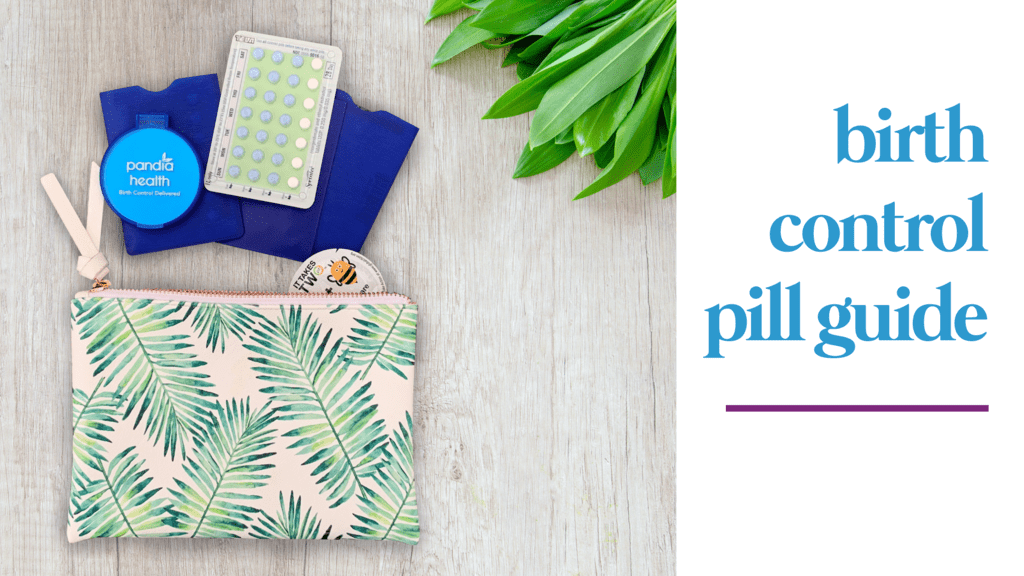Medically reviewed by Sophia Yen, MD, MPH – Written by Pandia Health Editorial Team
In this guide:
- What are birth control pills?
- How does someone take 28-day packs of birth control with the seven placebo pills?
- Is it safe to continuously take active birth control pills?
- What should someone do if they miss a dose?
- What are mini-pills?
- What should women who miss a dose of the mini-pill do?
- How effective is the birth control pill?
- What are the pros and cons of taking birth control pills?
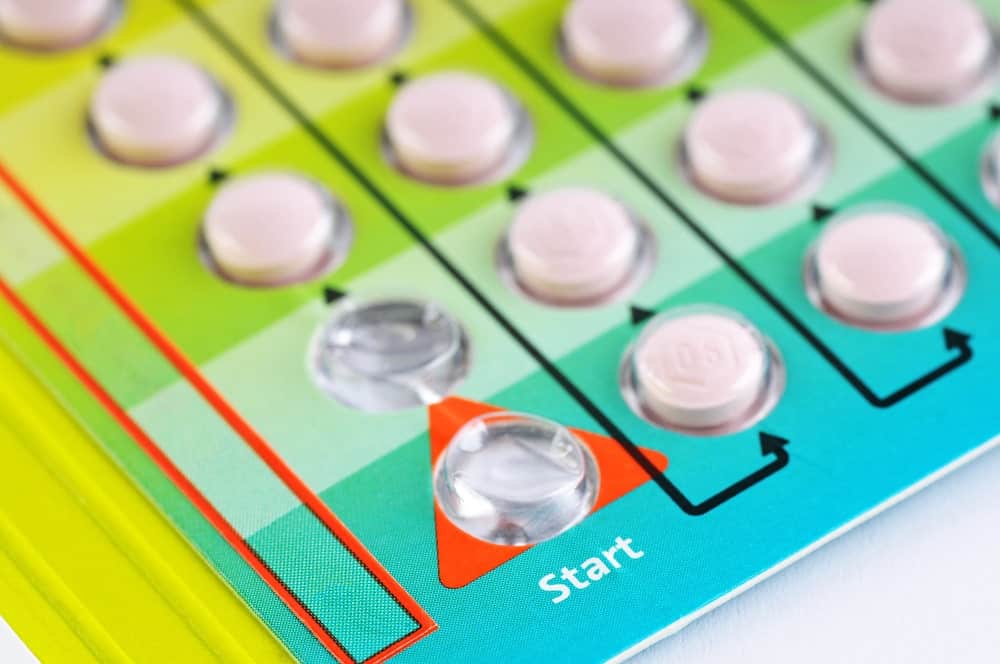
Since the mid-1960s in the U.S., the birth control pill has completely revolutionized women’s lives. Not only has the pill changed things for women on a personal level, but the birth control pill has also raised millions of children out of poverty and expanded the U.S. economy. Birth control pills don’t just prevent unintended pregnancy. Hormonal contraceptives also prevent and alleviate many different health conditions that are specific to female biology.
Birth control pills can be taken in monthly cycles, or long-term to prevent ovulation and menstruation. There are many different types of birth control pills, and also different pros and cons of taking them. The following guide will cover how birth control pills work, how they are taken, and how they can help women with certain health conditions.
What are birth control pills?
Birth control pills are pills that contain either a combination of hormones or progestin-only hormones. They work in two ways:
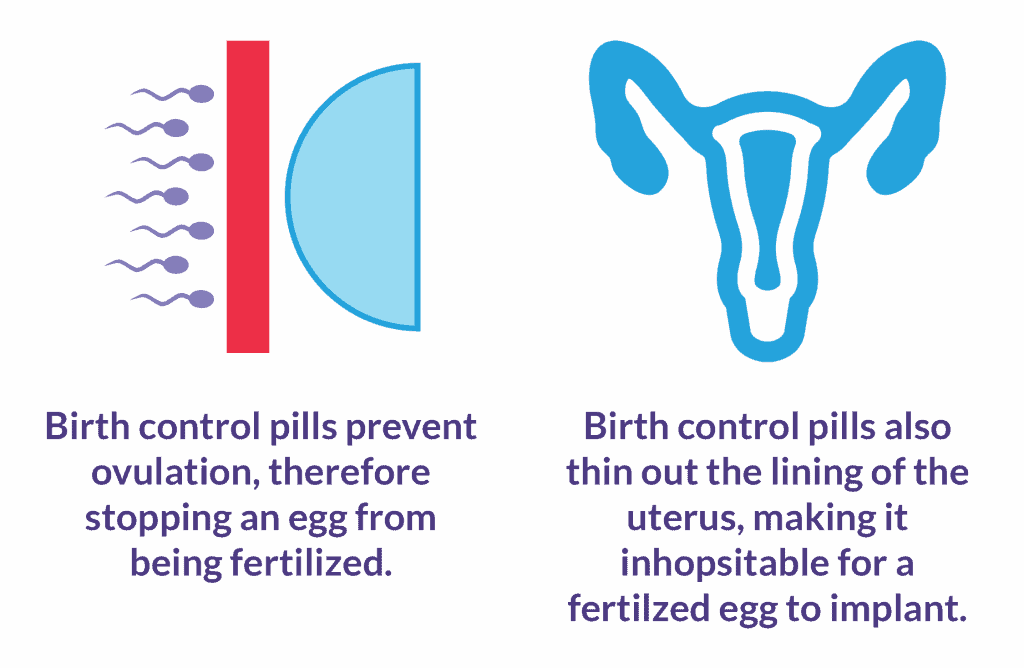
- Birth control pills prevent ovulation, therefore stopping an egg from being fertilized.
- Birth control pills also thin out the lining of the uterus, making it inhospitable for a fertilized egg to implant.
The most common type of birth control pills is combination pills that come in monthly packs. These pills usually combine synthetic estrogen and progesterone hormones. Most pills are part of a monthly pack that contains 21 active pills, and seven placebo pills. But some birth control pill packs have 23, 24, 26, or even 28 active pills.
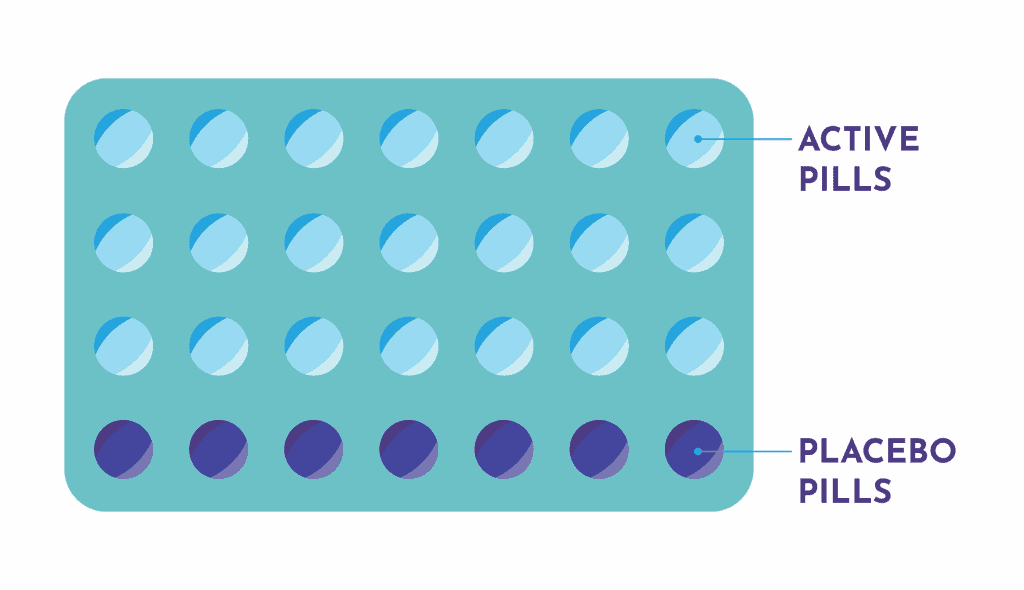
The placebo pills are taken during the week when a woman is supposed to get her period. Taking the placebo pills is there to help women stay on a pill-taking schedule so she does not end up forgetting the pills during the active weeks. Missing, skipping, or taking a dose way off schedule can cause ovulation and pregnancy.
Some birth control pill packages will contain 7 pills with low amounts of hormones, and not placebo pills. Depending on what a woman and her doctor decide is right for her health and lifestyle, she may decide to take hormonal birth control pills continuously and skip the placebos.
How does someone take 28-day packs of birth control with the seven placebo pills?
One birth control pill must be taken at the same time every day. It can be helpful to get into a habit or routine of taking the pill when a woman does something that she would normally do each day on a schedule, such as brushing her teeth in the morning. Setting an alarm on her phone can also be helpful for remembering to take the pill on a regular schedule. It’s best to take the pill about a half hour after a meal. Taking the pill on an empty stomach can cause nausea.
During the final week of a birth control pill pack, a woman will get her period while on the placebo pills. Once a 28-day pack is completed, it’s crucial to start on a new pack straight away. A period will end as soon as a new active pill is taken.
Is it safe to continuously take active birth control pills?
Yes, it is safe to take birth control pills continuously. It’s not medically necessary to get a period each and every month. In fact, skipping periods can lower the risk of certain cancers, and also improve a woman’s quality of life.
Birth control pills can come in packs of 42 pills, 63 pills, 84 pills, or even continuous pills that offer up to a year of period-free living. For women who have PMDD, painful cramps, or a lifestyle where periods cause a lot of inconveniences, talking to their doctor about taking extended birth control pills is a viable and safe option.
Taking extended birth control pills usually works best if the pills are monophasic. The biggest downside to taking continuous birth control is that some women may experience breakthrough bleeding or spotting that is unpredictable. Some insurance companies also will not pay for continuous birth control unless there is a medical reason for it.
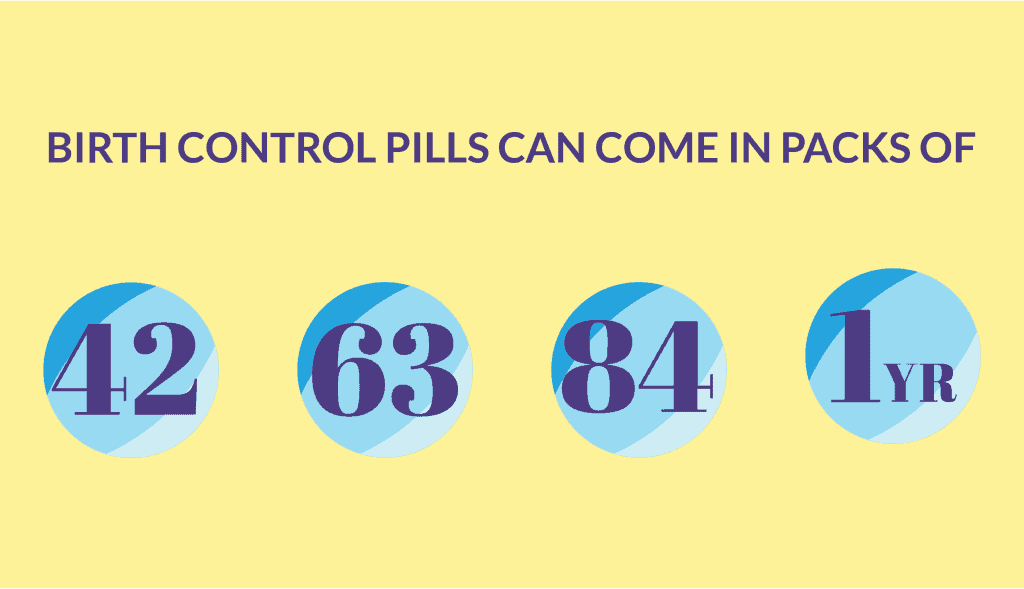
What should someone do if they miss a dose?
For women who take pills with active and inactive pills, there are several things they can do if they miss a dose or several doses of the pill. Missing pills can happen during stressful times in a person’s life, or if someone becomes sick. Drinking too much alcohol can sometimes cause vomiting which will interfere with the pill’s effectiveness.

Missing one active pill
Take the pill immediately after remembering, and then continue taking the rest of the pack at the regular time each day. It’s safe to take two pills on the same day, or two pills at the same time.
Missing two or more active pills in a row
Take the most recently missed pill immediately, and throw away the other missed pills. Continue taking the rest of the pack at the same time each day. Again, it is safe to take two pills in one day or two pills at the same time.
But, if a woman misses two or more active pills in a row during the third week (days 15-21) of the pack, she will need to throw away the inactive pills and finish taking all active hormone pills, and then start a new pack right away.
For women who are sexually active and miss two or more pills, it’s crucial to either not have sex, or use condoms when having sex until she takes seven active pills in a row.
What are mini-pills?
Mini-pills are progestin-only birth control pills. For women who cannot have synthetic estrogens that are used in most birth control pills, the mini pill may be a safe alternative. Women who are breastfeeding or women with a history of blood clots usually take mini-pills. Mini-pills come in packs that are similar to combination pills and are taken at the same time each day like combination birth control pills.
What should women who miss a dose of the mini-pill do?
If a woman misses a mini pill dose or is more than three hours late taking the pill, it’s crucial that she takes another pill asap, and also use condoms for at least two days after the missed dose. It’s also safe to take two pills in one day.
How effective is the birth control pill?
The pill needs to be taken every day at around the same time to be effective. If taken perfectly, it is 99% effective at preventing unintended pregnancy. But, it can be difficult for teens and adults to take the pill at the same time every single day, and certain medications or health conditions can interfere with the effectiveness of the pill.
Because of user error, the pill is considered about 91% effective. So for every 100 women who take the pill for a year, 9 could potentially become pregnant. Compared that to the withdrawal method, which is 78% effective, or condoms which are 85% effective, and the pill is one of the most reliable methods of preventing pregnancy.
What are the pros and cons of taking birth control pills?
Not only are birth control pills incredibly effective at preventing unintended pregnancy, but they also offer numerous different health benefits too.
One of the most significant benefits to using birth control pills is that they regulate hormones, and also prevent hormonal imbalances. Some women are incredibly sensitive to hormonal fluctuations that happen naturally with the female reproductive cycle. For example, many women experience mood swings during PMS, and more severe forms of mood swings can turn into a distressing psychiatric condition called PMDD. Birth control pills prevent hormones from fluctuating too wildly.
Also, birth control pills can either stop menstruation or at least lessen its severity. For women who are anemic, or experience heavy, painful periods, birth control pills can alleviate these conditions or symptoms. Continuous menstruation is also associated with a higher risk of certain cancers, including ovarian and uterine cancers. Women who take birth control pills for at least five years can lower their chances of getting ovarian cancer by up to 40%. Cancer prevention even works for women who have a family history of ovarian cancers.
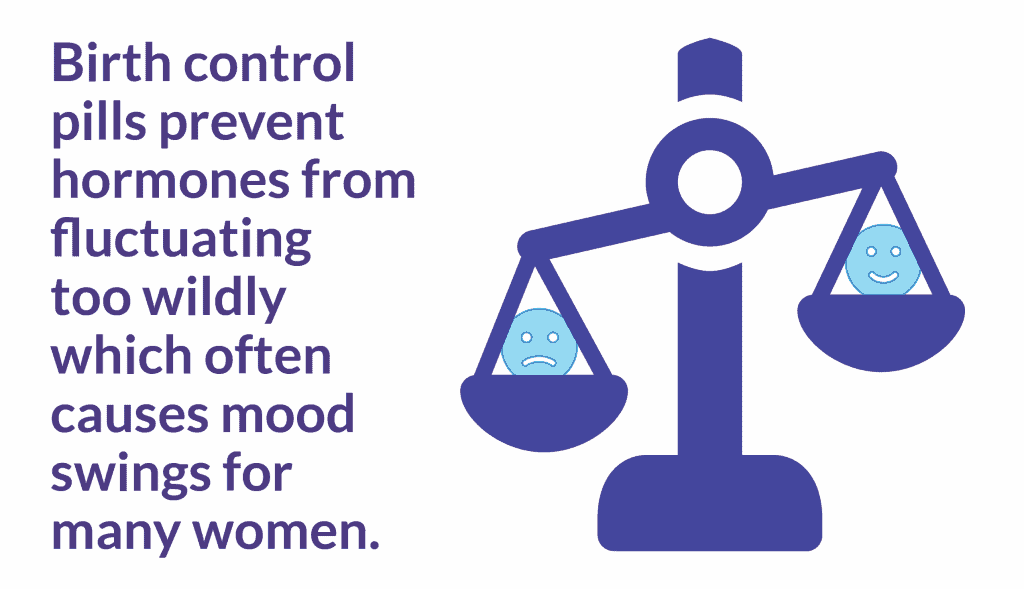
Polycystic ovary syndrome, or PCOS, is a painful condition caused by hormonal imbalances. Untreated PCOS can lead to insulin resistance or even infertility. Birth control pills can help regulate hormones and reverse the symptoms of PCOS.
But, it’s important for women to be aware of the cons of taking birth control pills. Some birth control pills can increase the risk of blood clots. For women who smoke, have a personal or family history of blood clots, or women over the age of 35 should not take hormonal birth control pills. There are other effective birth control options for women with these risk factors, including non-hormonal IUDs.
Birth control pills offer so many different health benefits for women, not just the peace of mind that comes with knowing that she will not get pregnant if she isn’t ready. Thankfully, it is now easier and more affordable than ever before to obtain safe, effective birth control pills.
Disclaimer: The views expressed in this article intend to inform and induce conversation. They are the views of the author and do not necessarily represent the views of Pandia Health, and are for informational purposes only, even if and to the extent that this article features the advice of physicians and medical practitioners. This article is not, nor is it intended to be, a substitute for professional medical advice, diagnosis or treatment, and should never be relied upon for specific medical advice.

